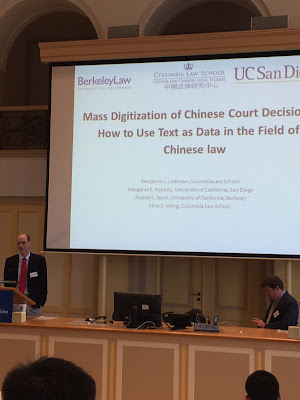
(Pix Credit 6th Tone))
I have started thinking through the issues around social credit generally, and the Chinese Social Credit project . I will be working through the issues and practices that are presented by
the emergence of Social Credit theory--both in China (as an indigenous
and quite complex set of policies, advances on political theory, and
operational challenges), and in the rest of the world. To understand the
shaping of law today (and soft law as well) one must understand social
credit. To understand social credit, one must understand the evolving
structures of the relationships, in law and politics, of the
relationships between states, its masses, and the institutions through
which it operates.
This post introduces and very briefly considers the the essay, Samantha Hoffman: "Managing the State: Social Credit, Surveillance and the CCP’s Plan for China," China Brief 17(11). The brief comments and the introduction to Managing the State" follows. Samantha Hoffman is an independent consultant. She is currently finalizing her Ph.D.: “Programming China: The Communist Party’s Autonomic Approach to Managing State Security”.
Index of Posts.
This post introduces and very briefly considers the the essay, Samantha Hoffman: "Managing the State: Social Credit, Surveillance and the CCP’s Plan for China," China Brief 17(11). The brief comments and the introduction to Managing the State" follows. Samantha Hoffman is an independent consultant. She is currently finalizing her Ph.D.: “Programming China: The Communist Party’s Autonomic Approach to Managing State Security”.
Index of Posts.















